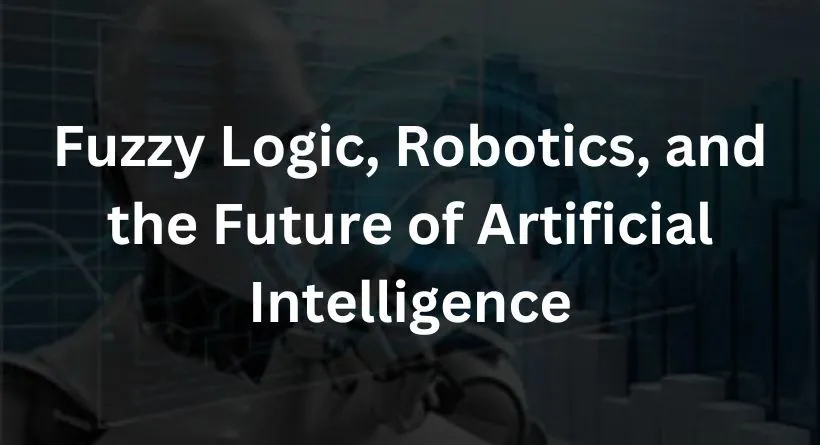
Artificial Intelligence (AI) is a vast field with diverse applications, and in this article, we delve into the realms of fuzzy logic, robotics, and the promising future of AI. Building upon our understanding of AI from the previous part, we’ll explore the practical applications in various sectors.
Applications of AI

Automobile Industry
The Fusion of AI with Automotive Excellence
The impact of AI on the automobile industry, from automatic cars to race bikes, is revolutionary. We unravel the complexities of AI integration, including braking systems, lane changes, collision prevention, and smart navigation.
You may also like reading: How Is Artificial Intelligence Shaping the Future of Work?
Healthcare Industry
AI as the Medical Assistant
In the realm of healthcare, AI proves to be a valuable assistant to doctors, offering efficient and accurate readings. Dive into how AI aids in cancer diagnosis, recommends medication dosages, and even supports surgeons in complex procedures.
AI in Online Shopping
Transforming the Shopping Experience
Discover how AI, particularly artificial neural networks, enhances the online shopping experience. We explore the role of AI in suggesting products, displaying recommendations, and making the entire process more personalized and efficient.
Fuzzy Logic in Artificial Intelligence

Understanding Fuzzy Logic
Deciphering the Logic of Uncertainty
Unraveling the concept of fuzzy logic in AI, we explore how it replicates human reasoning in decision-making. From n-valued logic systems to fuzzy output, we break down the intricacies of fuzzy logic architecture.
Applications of Fuzzy Logic
Beyond Certainty and Uncertainty
Delve into the practical applications of fuzzy logic, from controlling home appliances to managing environmental conditions and automotive operations. We explore the advantages and disadvantages of this nuanced approach.
Robotics in Artificial Intelligence

Unveiling Robotics in AI
From Mechanical Engineering to Humanoid Robots
Discover the synergy between robotics and AI, forming the backbone of intelligent machines. We explore how robots, powered by AI, navigate their surroundings, perform tasks independently, and contribute to various sectors.
Components of Robots
The Building Blocks of Intelligent Machines
Understand the essential components of robots, from power supply to sensors. We dissect the role of actuators, motors, muscle wires, and sensors in enabling robots to function effectively in diverse environments.
Applications of Robotics
From Industry to Space Exploration
Explore the wide-ranging applications of robotics, from heavy tasks in the industrial sector to space exploration and humanoid robots mimicking human tasks. Uncover the advancements in AI that enable robots to perform tasks independently.
Future of Artificial Intelligence

Self-Driven Vehicles
Autonomous Vehicles on the Horizon
Peer into the future as we discuss the evolution of self-driven vehicles. From partially automated to fully driverless, we examine ongoing efforts and the role of AI in shaping the future of transportation.
AI in Cybernetics Science
Enhancing Human Strength and Longevity
Discover how AI, in collaboration with robotics, contributes to the development of enhanced human bodies. We explore the applications in cybernetics, such as artificial limbs, aiding physically or mentally disabled individuals.
AI in Healthcare
Predictive Care and Disease Prevention
Unveil the World Health Organization’s vision of AI-powered predictive care. We discuss how AI analyzes individual lifestyles, eating habits, and medical history to predict disease risks and suggest preventive measures.
Conclusion
In this journey through the landscapes of fuzzy logic, robotics, and the future of AI, we’ve witnessed the transformative power of artificial intelligence across industries. As technology continues to advance, the potential for innovation and improvement remains limitless.
FAQs
Q1: How does AI contribute to cancer diagnosis in the healthcare industry?
AI aids in cancer diagnosis by providing efficient and accurate readings, assisting doctors in determining the right dosage and frequency of medication.
Q2: What are the main components of robots in AI?
The essential components include power supply, actuators, motors, muscle wires, and sensors, each playing a crucial role in enabling robots to function effectively.
Q3: How does fuzzy logic benefit the control of home appliances?
Fuzzy logic enhances the control of home appliances by converting ambiguous inputs into numerical values, making the analysis easier and allowing for flexibility in its functions.
Q4: What is the future outlook for self-driven vehicles?
The future promises fully automated and driverless vehicles, with ongoing efforts to incorporate AI technology for safer and more efficient transportation.
Q5: How does AI contribute to predictive care in healthcare?
AI-powered predictive care analyzes individual lifestyle, eating habits, and medical history to predict disease risks and suggests preventive measures, contributing to overall healthcare improvement.





